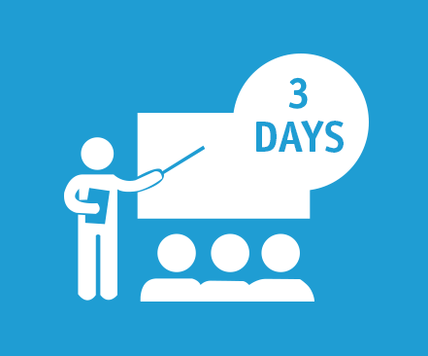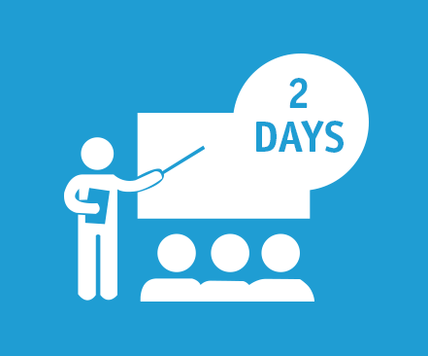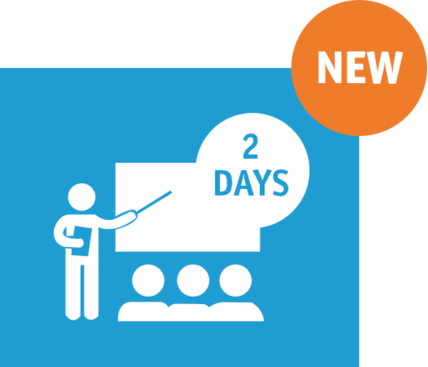DryLab Training Courses
Molnár-Institute offers courses on the application of the DryLab software for efficient HPLC method development. Our courses are taught by Dr. Imre Molnár, Dr. Hans-Jürgen Rieger, and Arnold Zöldhegyi, each of whom brings in-depth knowledge and experience to the classroom in both theory and practice of HPLC.
Courses are taught online in English or German regularly throughout the year, and we also offer In-House courses in English or German at company locations worldwide. Please contact us for more information.

DryLab®4 WebEx Training
The 3 online interactive sessions (each 2 hours) with a DryLab trainer provide guidance for HPLC and UHPLC method development using DryLab®4 tools. It is suitable for DryLab users and the participants are guided through a comprehensive method development process, starting with basic one-dimensional model calculations and continuing through multi-dimensional (3D) model optimizations. Users learn to develop, adjust, and improve methods, focusing on decreasing run times while maintaining the desired selectivity. They also recognize the trend to embrace Analytical Quality by Design (AQbD) principles including modern method-lifecycle aspects such as long-term usability and performance characteristics of the methods.

Intensive DryLab®4 Training for UHPLC Method Development – 3 Days
This course provides extensive training for the UHPLC method development by modeling under the use of the software DryLab4. Course participants are guided through a comprehensive method development process, starting with basic one-dimensional model calculations and continuing through multi-dimensional (3D) model optimizations. Users learn to develop, adjust, transfer, and improve methods, focusing on decreasing run times while maintaining the desired selectivity. Furthermore, the course teaches participants to systematically develop robust methods with DryLab4 by creating multidimensional models depicting the interaction of up to twelve of influential HPLC parameters, resulting in better communication with regulatory agencies and faster market entry for new drugs.
A part of this course is devoted to the topic Quality by Design in UHPLC method development. UHPLC users want to understand the QbD framework and how it relates to UHPLC method development processes, especially in regards to the submission of new drug applications. Analytical QbD is a modern concept for assuring the quality of a product, and is recommended by regulatory authorities like the FDA. The QbD approach requires a systematic study of the most important factors influencing the quality of a product, and can be successfully adopted into UHPLC method development using DryLab4 software. The course focuses on new approaches for visualizing the so-called “Design Space”, with the goal of gaining more flexibility in routine HPLC applications.

Intensive DryLab 4 Training for HPLC Method Development – 2 Days
This course provides extensive training for the HPLC and UHPLC method development software DryLab 4. Course participants are guided through a comprehensive method development process, starting with basic one-dimensional model calculations and continuing through multi-dimensional (3D) model optimizations. Users learn to develop, adjust, transfer, and improve methods, focusing on decreasing run times while maintaining the desired selectivity. Furthermore, the course teaches participants to systematically develop robust methods with DryLab 4 by creating multidimensional models depicting the interaction of up to three of the most influential HPLC parameters.

NEW: Method Development for the Separation of Therapeutic Proteins (Biopolymers) – 2 Days
This course gives an extensive training on HPLC (UHPLC) method development for the separation of therapeutic proteins. The fundamentals of reversed-phase (RP), ion-exchange (IEX), hydrophobic interaction (HI) and size-exclusion (SE) chromatography are explained and discussed. Several examples on monoclonal antibodies (mAbs) and related products (such as antibody-drug conjugates /ADCs/) are presented.
MAbs and related therapeutics currently account for global sales of ≥USD 50 billion and are starting to receive competition from biosimilar incomes. Most pharmaceutical companies have entered the rapidly growing biosimilar market. Therefore, the appropriate and detailed analysis of biopharmaceuticals at different levels (top-down, middle-down and bottom-up) is demanded by the authorities.
Participants will learn the different two- and three-dimensional (3D) optimization models for all the above mentioned chromatographic modes. Fast and efficient method adjustment, transfer and robustness testing are also demonstrated.
Method Development Services
Do you have a complex mixture and need an HPLC method immediately? The method needs to be robust and economical, with a short run time, but you anticipate weeks or even months of work on this task? Resources are tied up, and other projects must wait while valuable time is wasted?
If this sounds familiar, we have a solution! Simply send us your input runs, and we will develop a state-of-the-art DryLab method from our laboratory in Berlin.
We Deliver
- All neccessary peak tracking
- Development of a DryLab model
- Proof of method robustness
- A comprehensive method report
Contact us
Contact us to discuss your project. We will gladly consider other options and possible approaches.
Service and Support Package
Our comprehensive Service and Support Package offers the following benefits to DryLab users:
- Method Development Support: Expert guidance to optimize your analytical methods.
- Software Updates: Stay current with the latest features and enhancements.
- Online Consultations: Personalized virtual consultations to address your specific needs.
- Expert Advice: Receive professional advice on documenting the outcomes of your analytical procedures, including continuous improvement, control strategies, data integrity, Quality by Design (QbD), and Design Space Modeling.
- Customer Hotline and IT Support: Access dedicated customer service and technical support to resolve any issues promptly.